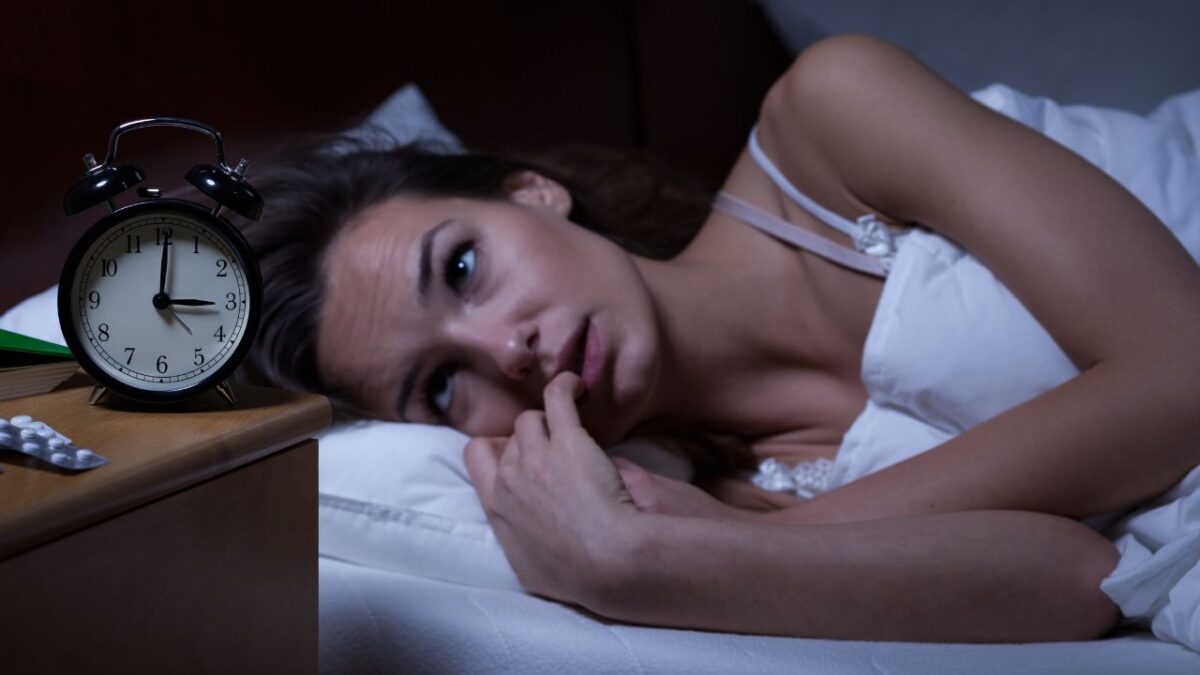Say Goodbye to Sleepless Nights: Perimenopause Edition!

Perimenopause ushers in a period of significant hormonal turbulence that can drastically affect your sleep quality. The fluctuations in estrogen and progesterone are mainly to blame for the sleep disturbances experienced during this time. Let’s dive into the specifics of how these hormonal changes cause sleep problems and outline practical steps to mitigate them.
Causes of Sleep Disturbances
- Hormonal Fluctuations: The most direct link between perimenopause and sleep disturbances is the fluctuation in estrogen and progesterone levels. Estrogen helps regulate the sleep cycle and maintain body temperature, while progesterone has natural sedative properties. As these hormone levels dip and surge, they can lead to trouble falling asleep, staying asleep, or achieving deep sleep.
- Hot Flashes and Night Sweats: A drop in estrogen levels can trigger the hypothalamus, your body’s thermostat, into thinking you’re overheated. This leads to hot flashes and night sweats, which can wake you up several times a night, making it hard to get continuous, restful sleep.
- Mood Disorders: Hormonal changes during perimenopause can also increase susceptibility to stress, anxiety, and depression, which are all linked to sleep disturbances like insomnia.
- Sleep Apnea: Weight gain is common during perimenopause, which can increase the risk of sleep apnea—a condition that interrupts breathing during sleep, leading to poor sleep quality.
Practical Advice for Quality Sleep
- Cool Down Your Bedroom: Keep your bedroom cool and well-ventilated. Use fans or air conditioning to lower the room temperature and consider moisture-wicking bed linens to help manage night sweats.
- Establish a Relaxing Bedtime Routine: Create a calming pre-sleep routine. This could include activities like reading, taking a warm bath, or practicing relaxation techniques such as deep breathing or meditation to signal your body it’s time to wind down.
- Limit Stimulants and Heavy Meals Before Bed: Avoid caffeine and alcohol in the evening, as they can exacerbate sleep problems. Also, steer clear of large, heavy meals close to bedtime, which can cause discomfort and indigestion, making it harder to fall asleep.
- Exercise Regularly, But Not Right Before Bed: Regular physical activity can help you fall asleep faster and enjoy deeper sleep. However, exercising too close to bedtime can energize you, making it harder to fall asleep. Aim to finish any vigorous activity at least three hours before you plan to go to sleep.
- Consider Sleep Aids Wisely: Over-the-counter sleep aids or natural supplements like melatonin might help, but they should be used cautiously and preferably under the guidance of a healthcare provider to avoid dependency or interference with other medications.
- Practice Mindfulness or Cognitive Behavioral Therapy (CBT): Mindfulness exercises and CBT can help manage the stress, anxiety, and mood swings that interfere with sleep. These techniques teach you to change negative thought patterns and behaviors that disrupt sleep.
- Consult a Healthcare Professional: If sleep disturbances persist, it may be worth discussing with a healthcare provider. They can offer advice on hormone replacement therapy (HRT) or other treatments that can alleviate severe symptoms of perimenopause, including sleep disruptions.
Implementing these strategies can significantly improve sleep quality during perimenopause. It’s about finding the right combination of lifestyle adjustments and, when necessary, seeking professional guidance to manage this transitional period more comfortably.
